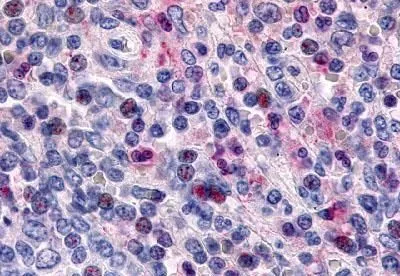
IHC-P analysis of human spleen, lymphocytes tissue using GTX70509 CCR1 antibody. Antigen retrieval : Heat-induced antigen retrieval
CCR1 antibody
GTX70509
ApplicationsImmunoHistoChemistry, ImmunoHistoChemistry Paraffin
Product group Antibodies
ReactivityHuman
TargetCCR1
Overview
- SupplierGeneTex
- Product NameCCR1 antibody
- Delivery Days Customer9
- Application Supplier NoteIHC-P: 5 microg/ml. IHC-P: 5 microg/ml. *Optimal dilutions/concentrations should be determined by the researcher.Not tested in other applications.
- ApplicationsImmunoHistoChemistry, ImmunoHistoChemistry Paraffin
- CertificationResearch Use Only
- ClonalityPolyclonal
- Concentration1 mg/ml
- ConjugateUnconjugated
- Gene ID1230
- Target nameCCR1
- Target descriptionC-C motif chemokine receptor 1
- Target synonymsCD191, CKR-1, CKR1, CMKBR1, HM145, MIP1aR, SCYAR1, C-C chemokine receptor type 1, C-C CKR-1, CC-CKR-1, CCR-1, LD78 receptor, MIP-1alpha-R, RANTES receptor, RANTES-R, chemokine (C-C motif) receptor 1, macrophage inflammatory protein 1-alpha receptor
- HostRabbit
- IsotypeIgG
- Protein IDP32246
- Protein NameC-C chemokine receptor type 1
- Scientific DescriptionThis gene encodes a member of the beta chemokine receptor family, which is predicted to be a seven transmembrane protein similar to G protein-coupled receptors. The ligands of this receptor include macrophage inflammatory protein 1 alpha (MIP-1 alpha), regulated on activation normal T expressed and secreted protein (RANTES), monocyte chemoattractant protein 3 (MCP-3), and myeloid progenitor inhibitory factor-1 (MPIF-1). Chemokines and their receptors mediated signal transduction are critical for the recruitment of effector immune cells to the site of inflammation. Knockout studies of the mouse homolog suggested the roles of this gene in host protection from inflammatory response, and susceptibility to virus and parasite. This gene and other chemokine receptor genes, including CCR2, CCRL2, CCR3, CCR5 and CCXCR1, are found to form a gene cluster on chromosome 3p. [provided by RefSeq, Jul 2008]
- ReactivityHuman
- Storage Instruction-20°C or -80°C,2°C to 8°C
- UNSPSC41116161

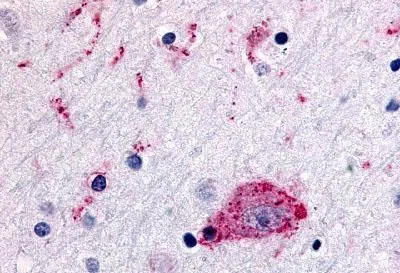
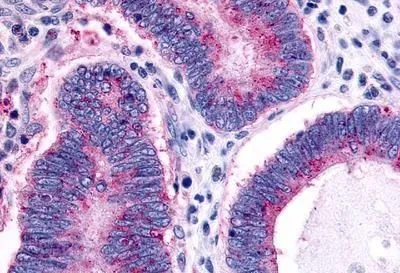
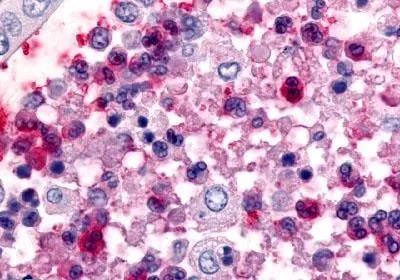
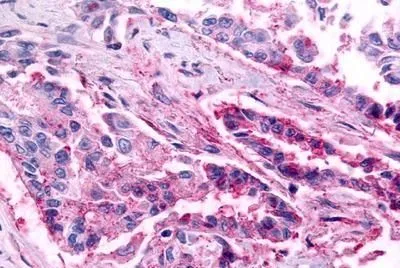
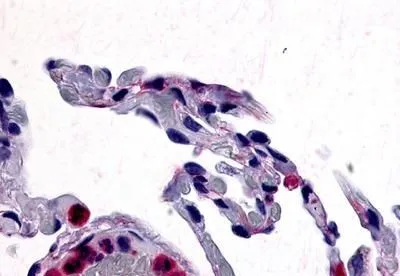
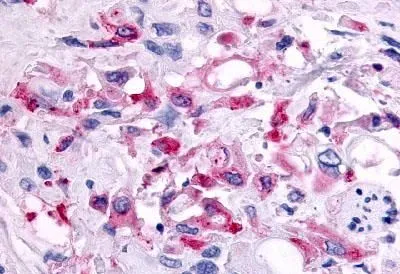
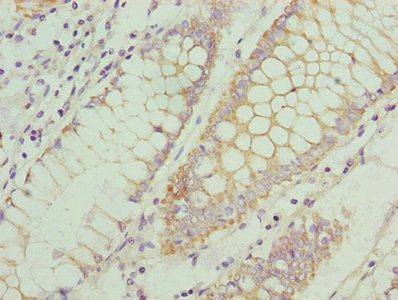

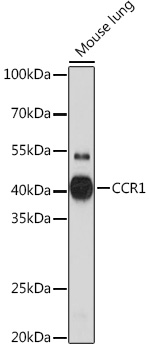

![CCR1 antibody [HL2840] detects CCR1 protein at cell membrane and cytoplasm by immunohistochemical analysis. Sample: Paraffin-embedded human breast carcinoma. CCR1 stained by CCR1 antibody [HL2840] (GTX640111) diluted at 1:100. Antigen Retrieval: Citrate buffer, pH 6.0, 15 min](https://www.genetex.com/upload/website/prouct_img/normal/GTX640111/GTX640111_T-45355_20240412_IHC-P_24043002_864.webp)
![CCR1 antibody [HL3023] detects CCR1 protein by immunofluorescent analysis. Sample: Mock and transfected 293T cells were fixed in ice-cold MeOH for 5 min. Green: CCR1 stained by CCR1 antibody [HL3023] (GTX640436) diluted at 1:500. Blue: Fluoroshield with DAPI (GTX30920).](https://www.genetex.com/upload/website/prouct_img/normal/GTX640436/GTX640436_T-45425_20240628_ICC_IF_B_24080622_951.webp)
![Non-transfected (–) and transfected (+) boiled and unboiled 293T whole cell extracts (30 μg) were separated by 10% SDS-PAGE, and the membrane was blotted with CCR1 antibody [HL3034] (GTX640472) diluted at 1:5000. The HRP-conjugated anti-rabbit IgG antibody (GTX213110-01) was used to detect the primary antibody.](https://www.genetex.com/upload/website/prouct_img/normal/GTX640472/GTX640472_T-45432_20240607_WB_B_24061301_834.webp)